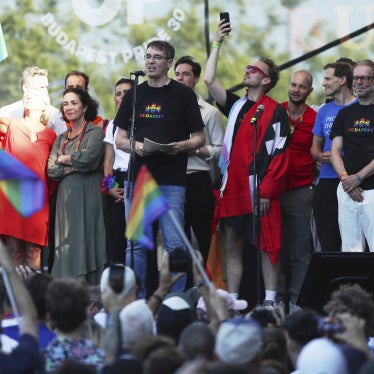My last visit to the House of Lords was in 2006. At the time I was still a member of the Dutch parliament and I was invited to be on a panel about Afghanistan. What I remember most of that brief visit to the House of Lords was not the discussion about war and development in Afghanistan, but a remark about marriage equality. Five years earlier, the new Dutch marriage law had come into force and allowed gay and lesbian couples to have the same marriage rights as different-sex couples. One of the British MPs approached me after the panel discussion and said: “What you’ve done in the Netherlands could never be achieved in the United Kingdom. Not in a hundred years!”
Seven years have passed and look where we are now. This week the debate in the House of Lords on marriage equality reached its final stage. Already this year, New Zealand, Uruguay and France beat the UK into legalising same-sex marriage, bringing the total number of countries where gays can legally marry to fourteen. Furthermore in Brazil, parts of Mexico, and fourteen states in the US, gay and lesbian couples can marry, although these marriages are not recognised in nationwide law. In all, some 607 million people now live in a country with same-sex marriage – that’s eight per cent of the world’s population. The legalisation of marriage equality seems unstoppable.
Some years ago I was taking the streetcar in Amsterdam. Opposite me two old friends, who’d not seen each other in a long time, shared their stories. “I got married last year,” the woman said, and she proudly showed the ring on her finger. “To a man or a woman?” the man asked casually. “A man, Peter is his name,” and she continued with how she had met him. It all sounded so natural, so matter-of-fact, that for a moment I had a vision that marriage equality had removed every form of discrimination on the basis of sexual orientation.
But of course, that is wishful thinking. Introducing marriage equality does not mean an end to discrimination. Not in the countries themselves, nor elsewhere in the world.
In Britain, the media still regularly report incidents where gay, lesbian and transgender people are beaten up on the street. Lesbian and gay couples are forced to move home when people in their neighbourhood harass them. Schoolchildren are bullied because they are perceived as being different. And the suicide rate, among especially young lesbian and gay people, is much higher than that of their peers. Even after twelve years of same-sex marriage, the Netherlands still faces the same kinds of problems.
But this is nothing compared to issues that LGBTI (lesbian, gay, bisexual, transgender and intersex) people in other parts of the world face.
In some 76 countries around the world, homosexual conduct is illegal. Cameroon spearheads the list of countries where gays and lesbians are arrested, prosecuted and sentenced to years in prison simply because they love someone of the same sex. In at least five countries, the death penalty still exists for homosexual conduct. Although South Africa has a marriage law for gay couples, in many other sub-Saharan states politicians use same-sex marriage as a pretext to continue violating the human rights of LGBTI people.
A few years ago in Kampala, I met a Ugandan government minister who had been promoting anti-homosexual legislation. When I discussed the universality of human rights with him, he exclaimed: “Imagine if we decriminalise homosexual conduct! Before you know it, the homosexuals would want to marry each other. That would be the end of African civilisation. No human rights for homosexuals!” But this hysteria around same-sex marriage is a red herring, calculated to mobilise public hostility. Few African LGBTI activists are advocating for marriage; they are focused instead on urgent issues such as murder, rape and arbitrary arrest on the grounds of gender identity or sexual orientation, and attempts to deny LGBTI people the rights to freedom of expression, assembly and association.
Of course legalised homophobia is not limited to the African continent. It’s shameful to remember that the current sodomy laws in former British colonies were introduced by the Brits. This poisonous legacy should prompt the British government to push for an end to the criminalisation of homosexual conduct within the Commonwealth of Nations. However, with gay marriage about to be legalised in the UK, the call for decriminalisation of homosexual conduct overseas needs to be pursued with diplomacy and an understanding of how delicate the issue of marriage equality is in those countries. Britain has to avoid the impression that it seeks to force marriage equality legislation on Commonwealth countries, just like it imposed its sodomy law all those years ago.
It’s a sad fact that the advance of same sex marriage legislation does not, on its own, lead to a decrease in homophobia. In fact, in Commonwealth countries, it might even create a fresh backlash. In Britain and around the world, the march towards equality and non-discrimination is often fraught with danger and disappointment.







